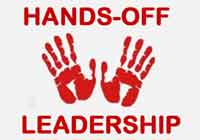

The second research question extends these insights to explore the contribution of the competitive meso-perspective network condition characterising high-skill industries in fostering engagement between high-skill employers and their macro-meso-micro perspective institutional training environments. R&D capability cooperation – industry-wide coalitions) supported policy stakeholders to facilitate meso-perspective employer engagement with high-skill training initiatives. As expected, employer engagement with supply-side education and training initiatives remained contested, although here Brown’s (2001) conditions (e.g. Policy stakeholders revealed a circumscribed employer engagement approach, yet highlighted a renewed previously unacknowledged emphasis in supporting a high-skill education and training agenda.

The first research question explores commonly acknowledged macroperspective institutional influences affecting engagement between UK policy stakeholders and employers, extending these explorations by assessing the relevance of Brown’s (2001) unexamined high-skill macro-perspective conditions. Eighteen convergent interviews are further conducted with policy stakeholders responsible in facilitating education and training in response to the needs of high-skill employers. A single inductive exploratory critical case study analysis, using three research questions is conducted using twenty interviews with senior individuals with HR roles working across the UK North West Bio region and its characteristic pharmaceutical, bioscience and biotechnology sectors.
Hands off leadership drivers#
The study acknowledges arguments that raise issue with prominent employer engagement drivers and barriers influencing the contested relationship between UK employers, policy organizations and institutions. doi:10.This study centrally utilises the micro-meso-macro-perspective architecture suggested by Dopfer and colleagues to understand the under-researched nature of employer engagement between stakeholders characterising the macro(national), meso(industry) and micro(organisational)-perspective institutional training contexts of high-skill industries. Importance of leadership style towards quality of care measures in healthcare settings: A systematic review. Sfantou DF, Laliotis A, Patelarou AE, Sifaki-Pistolla D, Matalliotakis M, Patelarou E. Ethical and passive leadership and their joint relationships with burnout via role clarity and role overload. Vullinghs JT, De Hoogh AHB, Den Hartog DN, Boon C. If only my leader would just do something! Passive leadership undermines employee well-being through role stressors and psychological resource depletion.
Hands off leadership professional#
The effect of class management types (Authoritative, democratic, laissez-faire) on teacher professional development among Iranian EFL teachers. Analyzing the relationship between happiness, teachers’ level of satisfaction with life and classroom management profiles. Impact of laissez-faire leadership on role ambiguity and role conflict: Implications for job performance. A review of leadership theories, principles and styles and their relevance to educational management. Worker productivity, leadership style relationship. In such cases, these leaders do nothing to try to motivate followers, don't recognize the efforts of team members, and make no attempts at involvement with the group.Īnbazhagan S, Kotur BR.




 0 kommentar(er)
0 kommentar(er)
